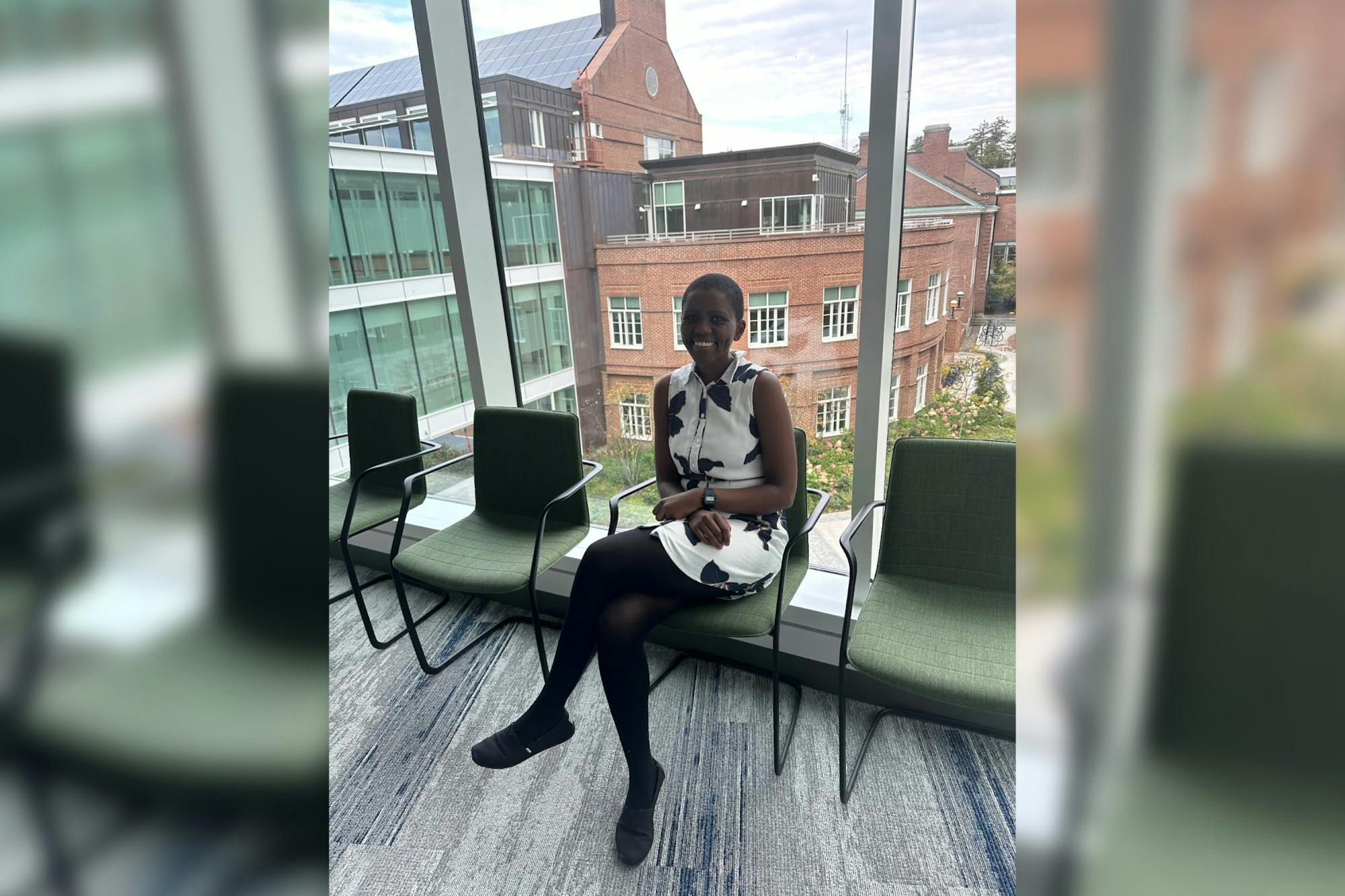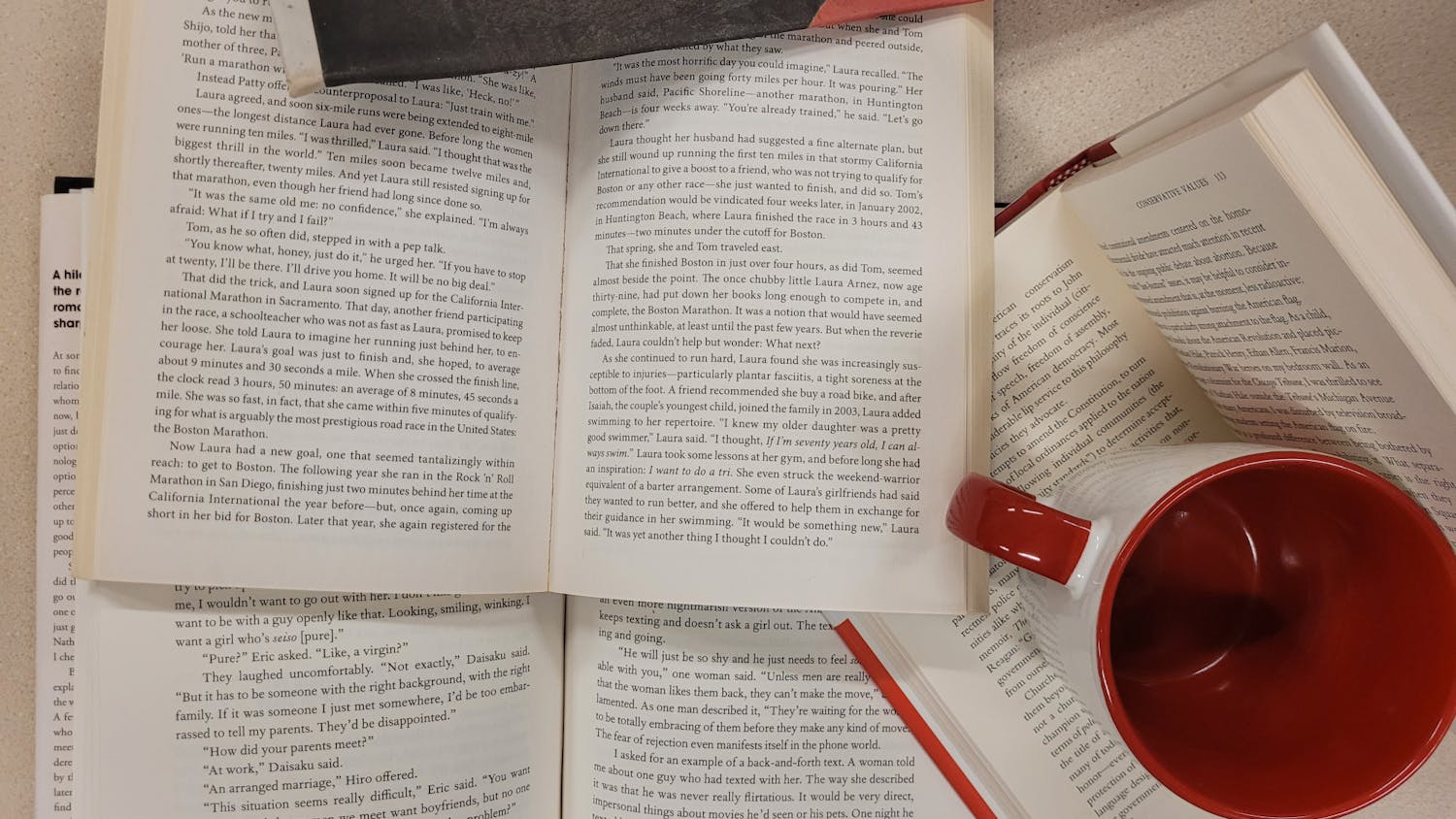Rose Mutiso ’08 Th ’08 has been awarded the McGuire Family Prize for Societal Impact. She is the co-founder of The Mawazo Institute, a women-led African organization based in Kenya and dedicated to helping female researchers in their early careers, according to The Mawazo Institute’s website. She is also the research director for the Energy for Growth Hub, a global think tank working to end energy poverty and build a climate-resilient future, according to the Energy for Growth Hub website. The McGuire Prize “recognizes and awards Dartmouth community members who have contributed toward or are responsible for making a significant positive impact on humanity, society or the environment,” according to Dartmouth’s website.
What inspired you to found The Mawazo Institute?
RM: I was at Dartmouth, where I was a Dartmouth engineer. Even if I think Dartmouth at that time was ahead of the curve in terms of women in engineering, we as women were still a bit of a minority. That’s changed a lot, which I’m happy about. But in those days I was a minority and then a Black woman. There are just a couple of us. And then I went and did a Ph.D., again in engineering and that was just compounding that problem where I’m the only Black woman.
I wondered where these women were. Where is there a pipeline to create more versions of me so that there can be more of us? At the same time, my Dartmouth classmate was pursuing a Ph.D. in African studies at University of California Berkeley. I think we came together on this idea because we both really value research and academia and are really passionate about the African continent and women. We were like, ‘why don’t we create a charity that really targets young African women and tries to support them to pursue higher education, finish Ph.D.’s, do high quality research that can kind of feed ideas around how to solve development challenges, but also cultivate thought leadership?’Actually, the word Mawazo means ideas, so we really considered it to be an incubator for women with ideas.
Had you always wanted to support women in science or did this interest develop more recently?
RM: I’ve always been a feminist. I definitely lived in a society in which women had fewer rights than men, and men had a lot of social power, economic power. And I saw very directly the suffering of women in that system. And so those ideas around women and empowerment resonated with me from an early age, but I didn’t have the vocabulary to really understand it. And over time, I think that intuition really developed. When I came to Dartmouth, I took a women and gender studies class my first semester, and that really gave me a framework to understand women’s issues, to understand feminism. I think that coming to Dartmouth really helped me formalize my sense that I really care about women. I really don’t want women to suffer, and if we don’t have women participating fully in our societies, we’re missing something fundamental. It’s not just for the women; it’s for the society.
How did you become involved with the Energy for Growth Hub?
RM: When I finished my Ph.D., where I was studying from a physics point of view, I was studying materials that had applications in energy. I moved into science policy and then on to energy policy as a way to do more work that was society facing but still connected to my technical background. Around the same time, I’d finished my Ph.D. in 2013, there was a lot of momentum around energy and its role in development. And so this was when the sustainable development goals were being deliberated on, and, for the first time, there was a goal specific to energy, and so people were kind of understanding that energies should be part of the development agenda. And so, for me, that was really quite exciting because I had moved from deep, deep science into more where science meets society, but I hadn’t figured out how to add in the Africa and development angle. I’m from Kenya, so that was like the missing leg of the stool for me.
Why did you choose to focus on the climate and energy future in Africa?
RM: I would say energy environment issues have been a big part of my life. My mom was a civil servant to the Minister of Environment. My dad was a geography professor studying desertification and its impact on livelihoods. And so there’s always this thread around the environment. I just had this orientation through my parents and through the physical landscape that I grew up in around nature and environment issues. And then I started working on engineering at a time when energy and climate issues are becoming increasingly existential, and so it just made sense that’s what I gravitated towards with my science. Once I graduated, I really began to understand how energy and climate issues are not just about climate change, per se, but also about opportunity, prosperity and development. Connecting all those dots, it just made sense as a space for me to spend time in.
What strategies do you use to support women in science? Do you think that these strategies are applicable on a larger scale?
RM: I’ve done all sorts of work around supporting women in STEM — really diverse settings. I remember when I was at Dartmouth, me and a classmate were involved in supporting girls getting into robotics in the Upper Valley. And then when I was a grad student, I taught an annual summer camp to get middle school girls into engineering and science. Those are examples of direct outreach, which is really going out and exposing people to science. And then my career, through Mawazo Institute, is another thrust where my job is just around creating ways to support women to pursue science at a high level and create an enabling environment for them. I think another way has just been by being an example, and I see that just by being who I am — being a thought leader. It just kind of flows naturally from who I am, what I do, what I work on.
What results have you seen so far from your work?
RM: The Mawazo Institute is now several years old, and it’s thriving and growing, and the staff has expanded. I think we’ve touched directly hundreds of women. There are those kinds of stats, like the size of organization, how much funding it gets and how many people have been impacted by the work, but what I find more meaningful is to try and pick specific examples that paint a more vivid picture than numbers. I remember by the end of our first cohort of women we supported speaking to one woman who just broke down and said that without us, she would have never been able to finish a Ph.D. Another said that some of this discretionary funding we gave her helped her to pay for help so that her child could be cared for, and she can focus on her work. Those stories of people and individuals that are behind the numbers keep me going.
What advice would you give for students that want to get involved with climate policy?
RM: Try and pick a general area that resonates with you, with your values. If you’re somebody who’s always loved the outdoors, loves to be in nature, loves the issues around the natural environment, there are many ways to build or at least explore a career around climate issues that interconnect with that. If you’re somebody who’s really interested in economics and finance and business, there’s a lot of room to bring climate into those issues around green investment. Since climate is all-encompassing and so existential, I like to encourage people to follow curiosity and find the climate dimension.
This article was edited for clarity and concision.

My name is Sierra Sugarman '27, and I am from Pacific Palisades, California. At Dartmouth, I am majoring in Quantitative Social Science. In addition to writing for The D, I am involved with Dartmouth Consulting Group, Dartmouth Center for Social Impact, First-Year Trips, and Jewish groups on campus. I love doing practically anything at the beach, traveling, and spending time with friends.




